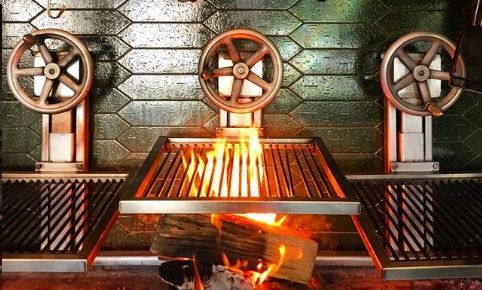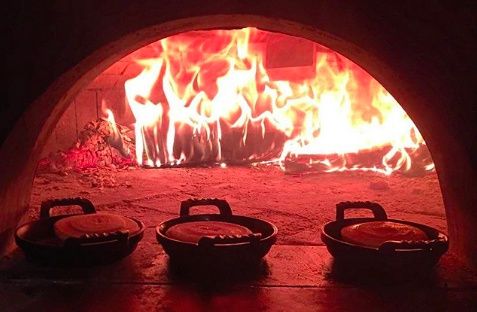In De Wulf was one of those places where I always dreamt I’d work. For independent reasons, I never had the chance. However, I remember what was being said of Kobe Desramaults: a whimsical chef, a rebel, free from categories and wild deep down. After some time and some extra experience, I felt the need to free myself from the superstructures that fine dining often imposes, to return to the essential, to find a true connection with my profession. This is how Chambre Séparée appeared.
Kobe’s new project in Gent is the evolution of what was once In De Wulf with the necessary adjustments: an instinctive, direct, but always elegant and reasoned cuisine, where clients are once again the protagonists of the dinner. It only seats 16 people, facing the open view kitchen. No stoves, no roner ovens, only embers, grills, ash and wood oven. A 20-course menu that changes daily, based on the best the market can offer each day. Three cooks, one sommelier, one waiter.

Kobe has kept his wild nature. He matures his pigeons for 7 weeks in hay. He serves liver and uses roasted bone marrow instead of oil to season his Holstein tartare. With pastry making, we use a syrup of fermented bread instead of honey and we cook the pastry on 10-year-old cast iron pans. Our cuisine is sustainable and wastes no food: what is left over, or cannot be used for a dish, we transform into vinegar, miso, garum or preserve.
At a time in history when technology often prevails in the kitchen, distancing cooks from the essence of their work, Kobe shows the world what the cuisine of the future will be like, and goes centuries back in time: clean dishes, no spherification, no sans-vide, no jellifying additive. Pure technique, sensitivity, raw materials and attention to the guests who entrust the chef. We cooks serve every dish and explain it and reveal it. There are no prima donnas or secret recipes. Everything is true, tangible, comprehensible, universal.

What surprised me the most of this place is the clients: on top of those who miss In de wulf, of journalists and foodies, most clients are local, common people who simply appreciate good food and a calm atmosphere, and want to be the protagonists of a unique experience without feeling inappropriate. The fact it’s us cooks who serve and explain each dish creates a connection with the guest and an intimate climate. We entertain guests, we invite them to eat with their fingers, we free ourselves and those who eat of the impositions of starred restaurants. We make incredible dishes accessible to anyone.
I won’t compare starred restaurants, or say who’s better. As I’m passionate about the truth in a dish, and I choose to work hard for hours and hours to improve the life of someone, at least in the space of a meal, working for Kobe has been enlightening: there’s a way to make the extraordinary accessible to all, and I believe that Chambre has found it.
I hope the future of cuisine will go in this direction, that chefs will return to work not just for their ego or for likes on Instagram, that they will return to touch the ingredients and leave those bloody pincers at home, to handle them with wisdom and sensitivity without tricks or shortcuts, that they become fully aware of the responsibility they have when feeding someone, of the impact that using an ingredient in all its parts has on the environment, and that they respect the seasons and the balance of nature, the importance of study and research and of having guests at the centre, once again.
Translated into English by Slawka G. Scarso